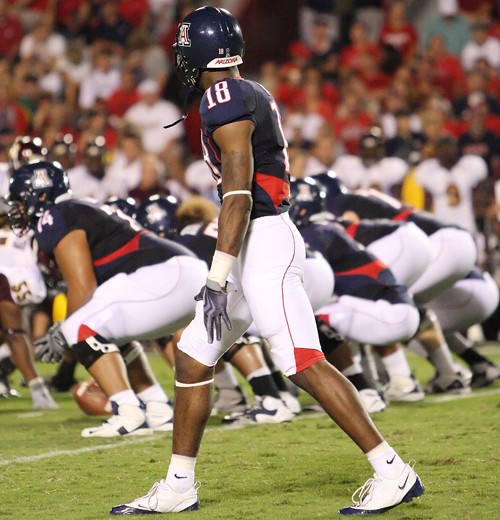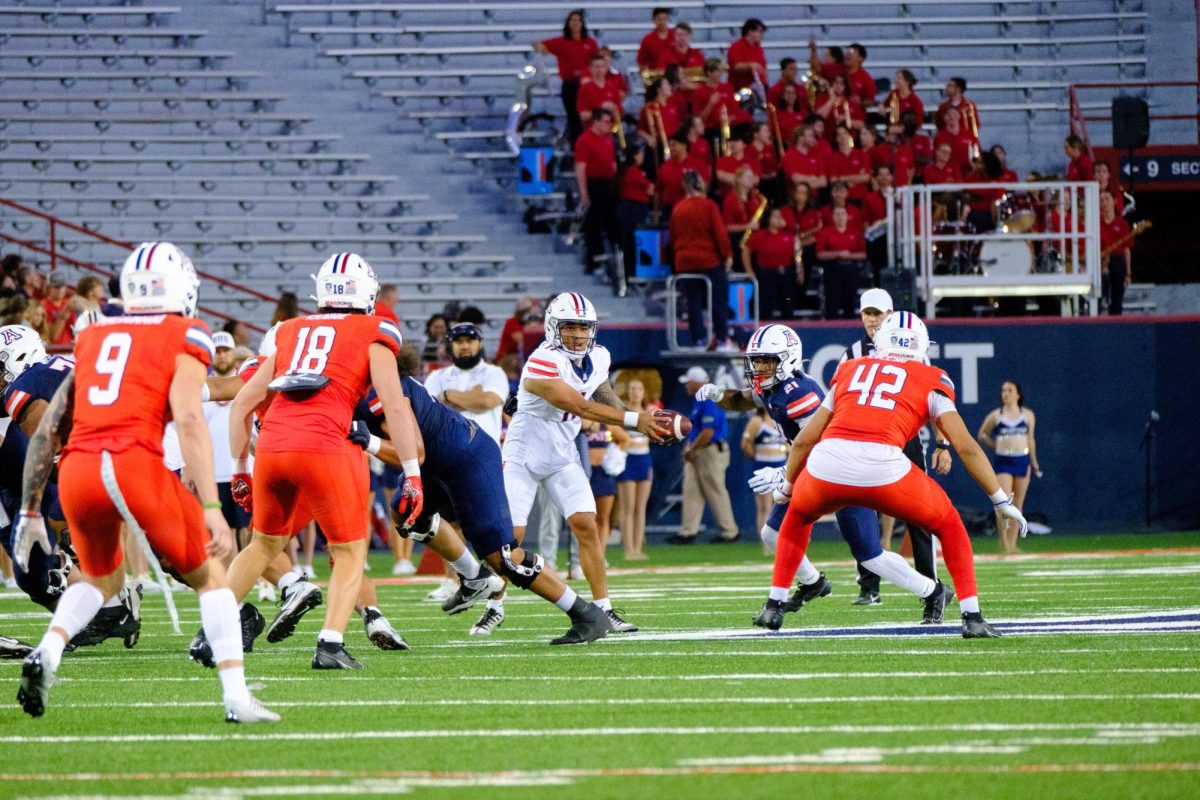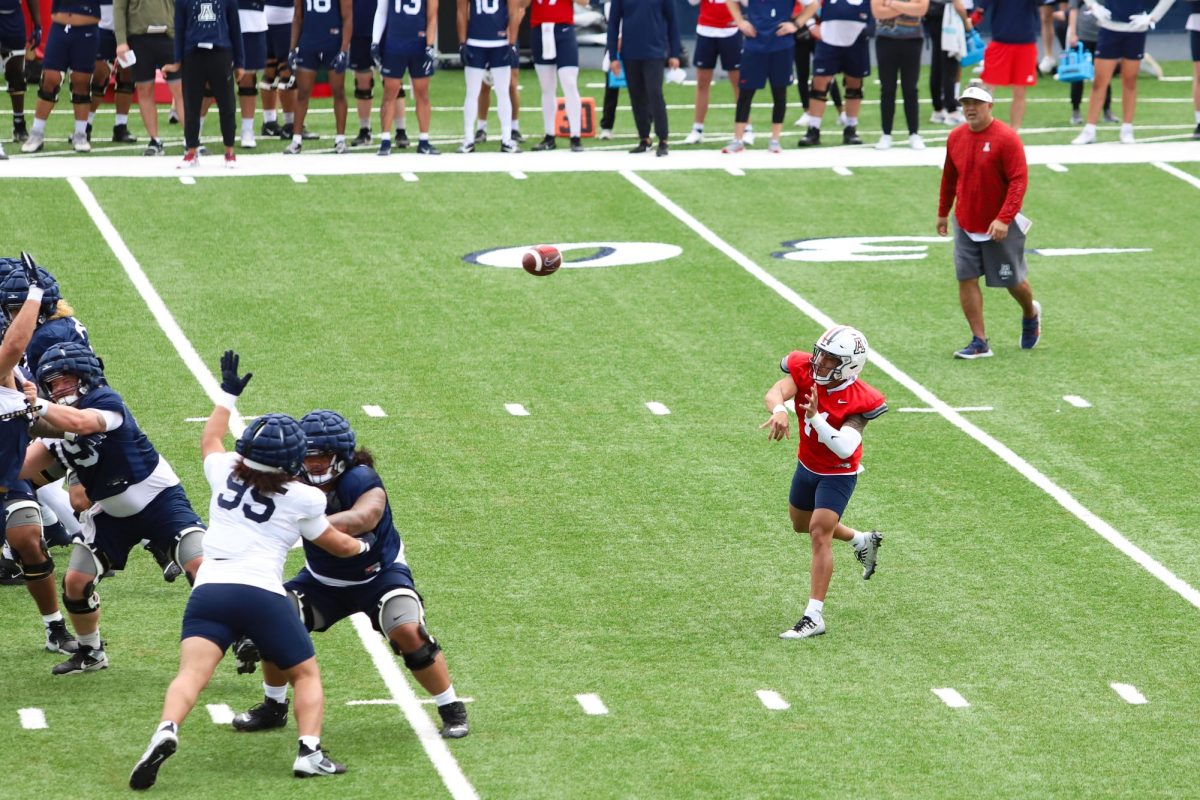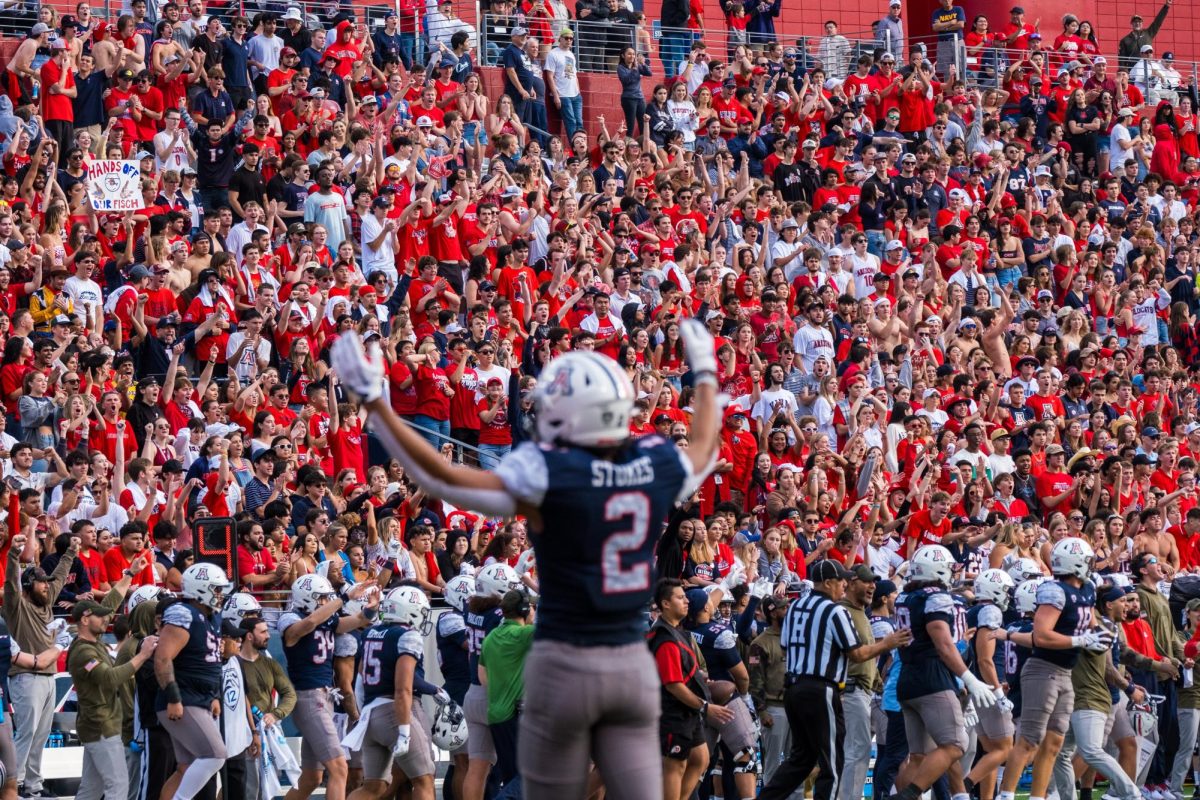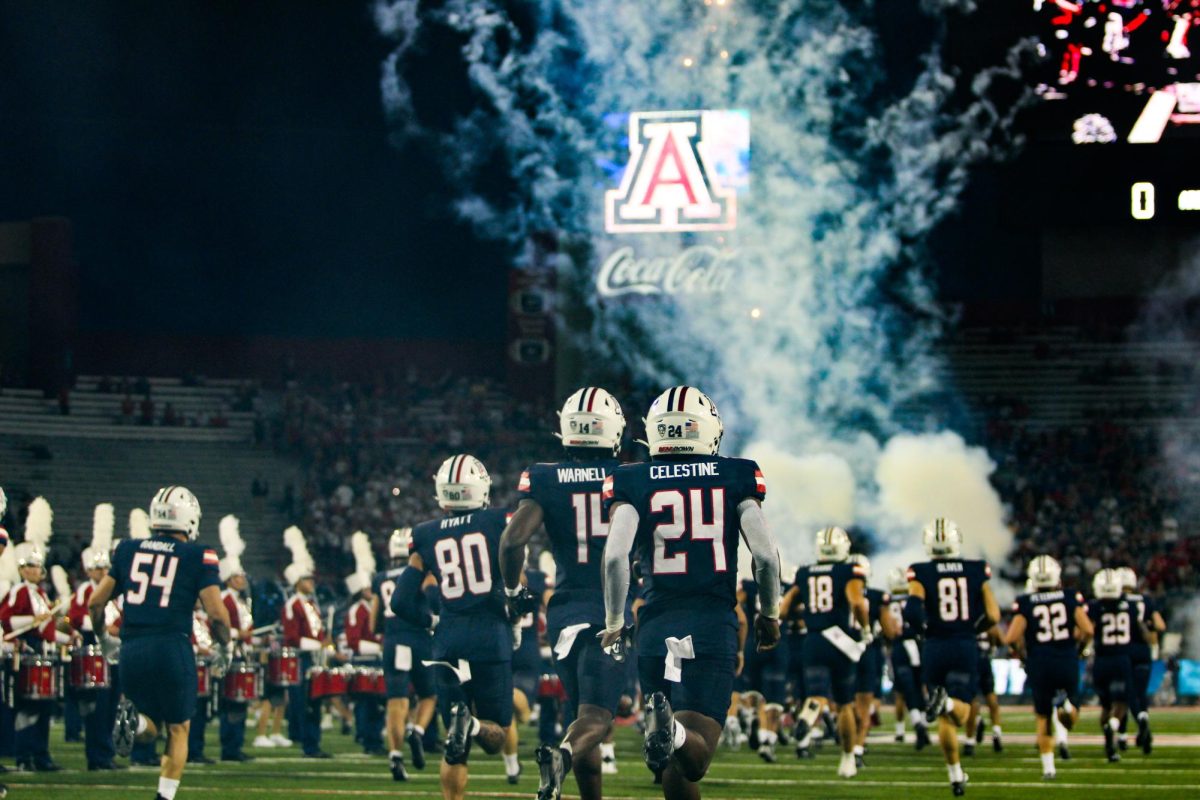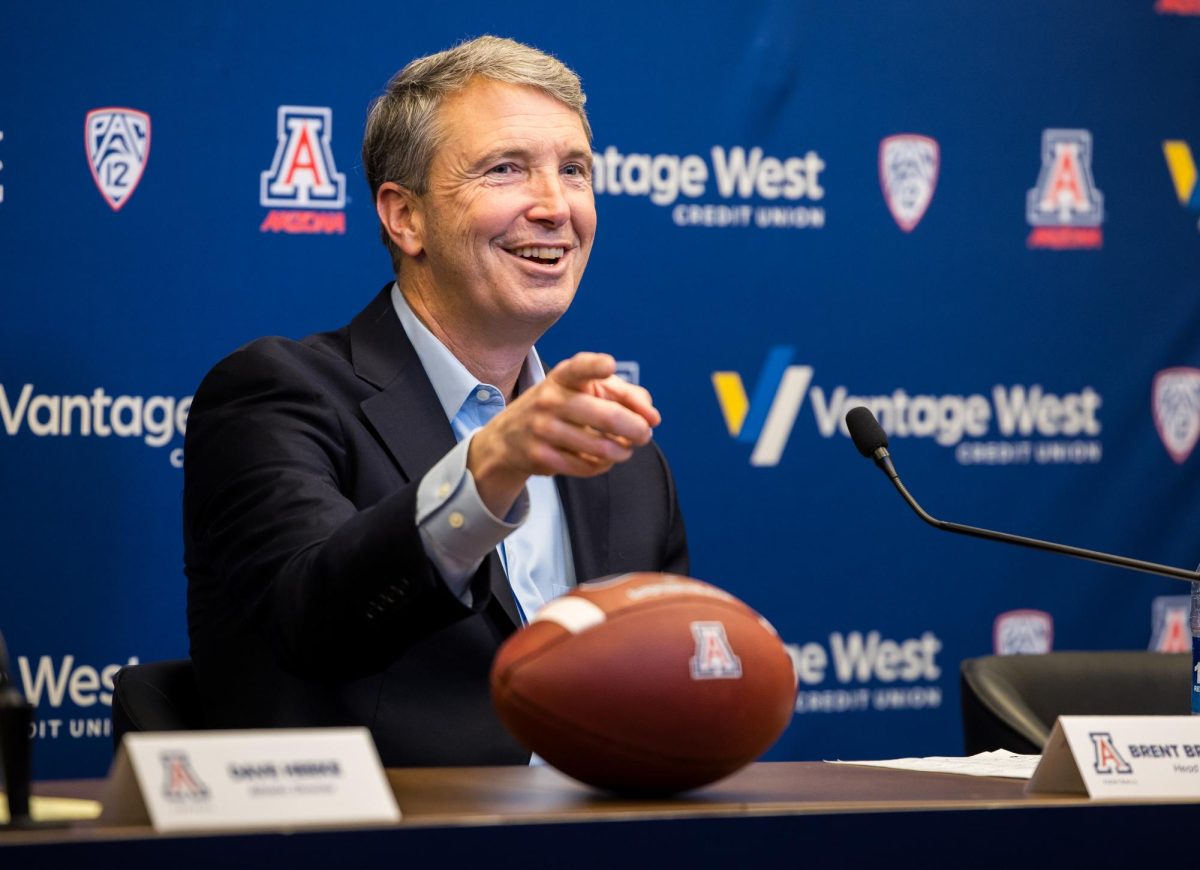It might seem like all there is to being a wide receiver is catching and scoring touchdowns, but the responsibilities of the fastest guys on the offense run much deeper than that. In fact, wide receivers need to do the same thing that offensive linemen need to do in order to stay on the field: block.
“”You have to block or you’re not going to play,”” said outside receivers coach Dave Nichol.
Every offense requires wide receivers to block on running plays — the technique that receivers use during a run is called “”stalk blocking”” — but they’re asked to do a lot more than that in offensive coordinator Sonny Dykes’ system. The Wildcats utilize screen passes as frequently as they do any other play, for several reasons.
For starters, screens are as safe as running plays but different enough from a run that it keeps defenses on their toes. Like a running play, a traditional screen pass generally nets about five yards per attempt, but it has the chance to be broken for a big play — and that only happens when fellow wide receivers block for each other.
“”The thing about us is that we run so many different screens that they’re always blocking for each other,”” Nichol said. “”One time Delashaun (Dean) could have a huge block for Juron (Criner), and then Juron could have a huge block for Terrell (Turner). The thing I’m most proud of is that they’re pretty unselfish.””
They pride themselves on blocking for each other in hopes of springing a screen pass for a big play.
“”We have plays where I get the ball on a screen and we have plays where the outside guys get the ball on a screen, so (blocking on a passing play) doesn’t matter to me because we’re blocking for each other,”” said inside receiver William “”Bug”” Wright. “”As long as he blocks for me, I’m going to block for him.””
A screen to Wright — or any other inside receiver — is most commonly referred to as a “”bubble”” screen.
When the ball is snapped, the inside receiver turns to the nearest sideline and runs in a half-circle starting away from the line of scrimmage and then comes back upfield, giving his quarterback room to throw.
The extra running behind the line also allows the outside receiver to crash inside and block the defender who was originally lined up across from the inside receiver.
Fortunately for Wright, that outside receiver is usually junior Delashaun Dean, who Nichol believes is the best blocking receiver on the team.
“”The word I always use with Dela is ‘sudden,’ and he’s long and he’s extremely athletic,”” Nichol said. “”People always say that blocking is an effort deal, which it is, but the more athletic you are, the better you’re going to be at it. He can recover when he might take a bad angle, so that helps him a lot.””
On the flip side, screens to Dean or other outside receivers are either “”rocket”” or “”quick”” screens.
A “”quick”” screen isn’t always called in the huddle, but rather as an audible at the line of scrimmage. When a quarterback sees that the opposing cornerback is giving his wide receiver a large cushion, he could “”check”” at the line of scrimmage, instructing the receiver to turn and catch the ball behind the line and take the free yards that the corner is giving him.
A rocket screen is generally called in the huddle because it’s more of an actual play. The outside receiver will take a step or two behind the line of scrimmage, sprint toward his quarterback, then catch the short throw and turn up the middle of the field behind a cavalcade of linemen and inside receivers.
Blocking isn’t glamorous. It won’t show up in the stat sheet and it most certainly won’t get you on SportsCenter — but it is absolutely necessary to help a football team achieve its ultimate goal.
“”I care about my teammates and that’s all blocking is, it’s taking care of the guy next to you,”” Dean said. “”We all have one goal and that’s to win, so whatever I have to do to reach that goal then I’m going to do it. If that’s blocking, then I’ll block.””



